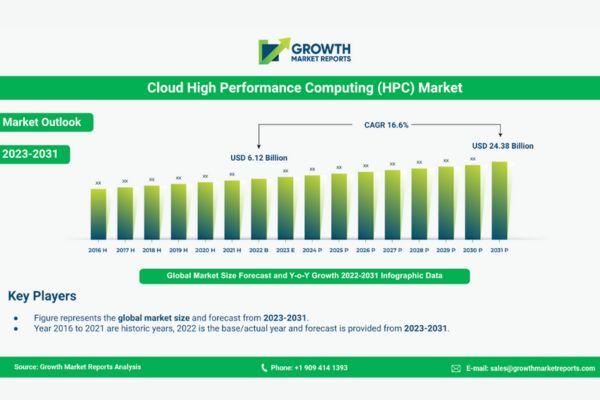Overview:
Cloud High Performance Computing (HPC) is transforming how businesses and researchers approach complex computational tasks. By leveraging the scalability, flexibility, and cost-effectiveness of cloud computing, HPC enables the execution of intensive workloads without the need for extensive on-premises infrastructure. This article explores the concept of Cloud HPC, its benefits, applications, challenges, and future prospects.
High Performance Computing refers to the use of supercomputers and parallel processing techniques to solve complex computational problems. Traditionally, HPC required significant investment in dedicated hardware, software, and maintenance. However, Cloud HPC shifts this paradigm by providing HPC capabilities through cloud platforms.
Cloud HPC involves the use of cloud resources—such as virtual machines, storage, and networking—on a pay-as-you-go basis. This model allows organizations to access powerful computing resources on demand, scaling up or down based on their requirements.
Market Summary:
The Global Cloud High Performance Computing (HPC) Market size was valued at USD 6.12 Billion in 2022 and is expected to surpass USD 24.38 Billion by 2031, expanding at a CAGR of 16.6% during the forecast period, 2023–2031. The growth of the market is attributed to the emergence of big data and complex applications, such as ultra-high-definition workflows, electronic design, and automatic simulations across various industries.
Future Trends in Cloud High Performance Computing
Looking ahead, several trends are shaping the future of Cloud HPC:
1. Edge-to-Cloud Integration
The integration of edge computing with Cloud HPC will enable real-time data processing, reduce latency, and enhance responsiveness for IoT applications, autonomous systems, and edge analytics.
2. Quantum Computing and Hybrid Architectures
Advancements in quantum computing technologies and the development of hybrid cloud architectures will expand the capabilities of Cloud HPC, addressing computationally intensive problems and unlocking new frontiers in science and technology.
3. AI-Driven Automation and Optimization
AI and machine learning algorithms will play a crucial role in automating workload optimization, resource provisioning, and cost management in Cloud HPC environments. AI-driven insights will enable proactive decision-making and enhance operational efficiency.
4. Sustainable Computing Practices
Cloud providers are investing in sustainable data center technologies, renewable energy sources, and energy-efficient computing architectures. Sustainable computing practices will minimize environmental impact and support corporate sustainability goals.
5. Democratization of HPC
Advancements in cloud technologies, along with increased accessibility and affordability, will democratize access to HPC capabilities for SMEs, startups, and educational institutions. This democratization will foster innovation and collaboration across diverse sectors.
Competitive Landscape
The cloud high performance computing market is very competitive owing to the presence of many major players. The major players in the market are Intel Corporation Inc., Hewlett-Packard Company, Microsoft Corporation, IBM, and Fujitsu Limited.
Companies are engaging in product launches, investing on R&D activities, partnerships and acquisitions to expand their market share.
Get more information here: https://growthmarketreports.com/report/cloud-high-performance-computing-market-global-industry-analysis

















